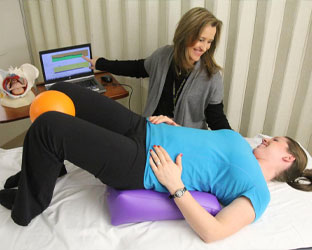
Discover the Benefits of Physiotherapy in Surrey at Arka Physiotherapy
- Tue Apr 22

Pelvic floor health is a crucial aspect of overall well-being, yet it is often overlooked. Many individuals, particularly women, experience issues related to the pelvic floor, such as incontinence, pelvic pain, and postpartum discomfort. Fortunately, pelvic floor physiotherapy in Surrey offers effective, non-invasive solutions to help restore strength, improve function, and enhance quality of life.
The pelvic floor is a group of muscles, ligaments, and connective tissues that support the bladder, uterus, and rectum. These muscles play a vital role in core stability, bowel and bladder control, and sexual function. When the pelvic floor becomes weakened or overly tight, it can lead to various issues, including:
Pelvic floor dysfunction can result from pregnancy, childbirth, aging, surgery, or lifestyle factors such as prolonged sitting or high-impact sports. Addressing these concerns through targeted physiotherapy can lead to significant improvements in daily comfort and function.
Pelvic floor physiotherapy is a specialized branch of physiotherapy that focuses on assessing and treating issues related to the pelvic muscles. Here are some key benefits:
1. Strengthens and Restores Muscle Function
A customized exercise program helps to retrain and strengthen weak pelvic floor muscles. This is particularly beneficial for postpartum women, individuals recovering from surgery, and those experiencing muscle weakness due to aging.
2. Improves Bladder and Bowel Control
Incontinence can be a distressing issue, but pelvic floor therapy provides effective strategies to regain bladder and bowel control, reducing leakage and urgency problems.
3. Reduces Pelvic Pain
Conditions such as endometriosis, pelvic inflammatory disease, or muscle tension can contribute to pelvic pain. Physiotherapists use manual therapy, relaxation techniques, and stretching exercises to relieve discomfort and improve mobility.
4. Supports Postpartum Recovery
Childbirth can weaken the pelvic floor, leading to issues like diastasis recti or prolapse. Physiotherapy helps new mothers regain strength, improve posture, and return to normal activity with confidence.
5. Enhances Sexual Function
Pelvic floor dysfunction can cause discomfort during intimacy. Physiotherapy techniques help to release muscle tightness and improve blood flow, leading to increased comfort and enjoyment.
A professional pelvic floor physiotherapy session in Surrey begins with a comprehensive assessment. The physiotherapist evaluates muscle strength, flexibility, and overall function. Based on the findings, a personalized treatment plan is created, which may include:
If you're experiencing pelvic floor issues, seeking pelvic floor physiotherapy in Surrey can help you regain strength and improve well-being. With expert guidance, you can restore muscle function, enhance mobility, and enjoy a better quality of life. Contact a trusted physiotherapy clinic today to start your journey to optimal pelvic health.